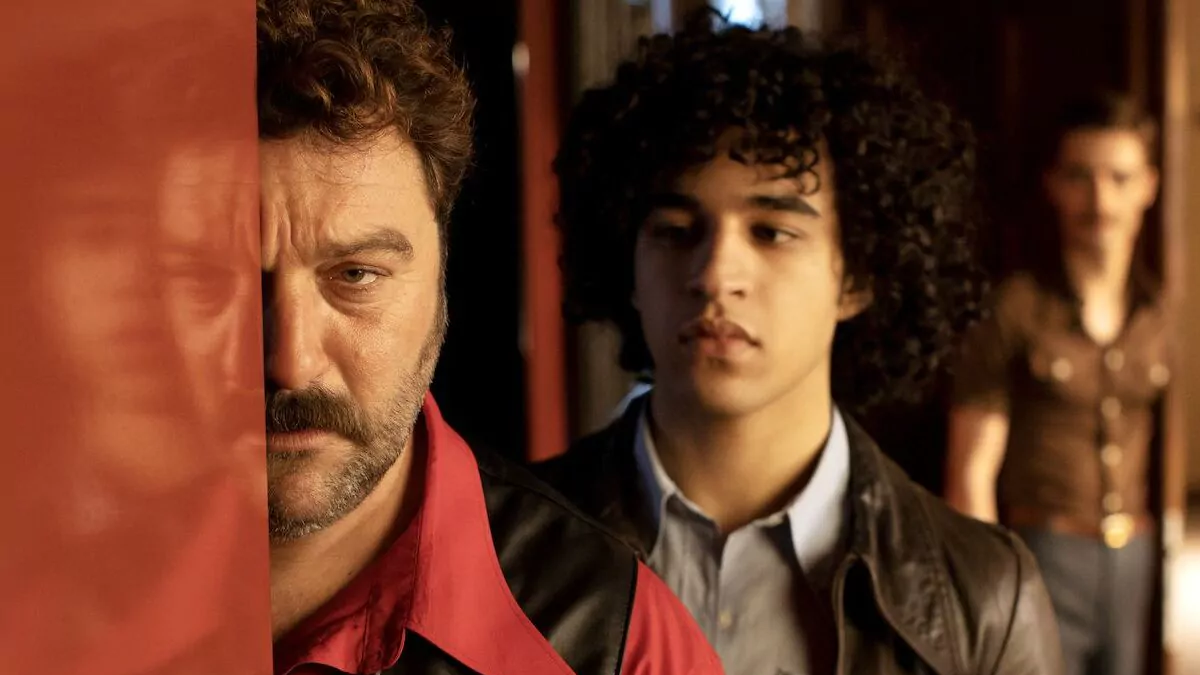'Peter Von Kant' REVIEW: An ode to Fassbinder
'Peter Von Kant' REVIEW: An ode to Fassbinder
Gender-flipped remakes are in nowadays. With the release of HBO's American remake of Ingmar Bergman's Scenes from A Marriage, these remakes try to reinvent the classics to explore topics that they touched upon differently (in most cases, in the lens of today's age). These projects come out with the intention of updating an outdated script or serving as a "respectful" homage to the inventor of the classic film.
In 2000, French film director François Ozon released his third full-length film Water Drops on Burning Rocks (or Gouttes d'eau sur pierres brûlantes in French), an adaptation of Rainer Werner Fassbinder's play of the same name. From there on, Fassbinder's influence (and that of other legendary directors) in Ozon has been present somehow in his films. He shows his reverence for the late director once again in his film, Peter Von Kant.
Peter Von Kant is a remake of Fassbinder's 1972 film The Bitter Tears of Petra Von Kant. Ozon does the gender reversal, where the three lead characters are all male-gendered. It still explores the gender and power dynamics in relationships akin to Fassbinder’s, as well as the toxicity and complexity of its titular character. However, the film does have a twist: it confronts the many fallibilities of the director in a melodramatic fashion. With the Peter Von Kant role being modeled to Fassbinder himself and the story re-sculpted to mirror the director's complicated life, Ozon might as well titled this as ‘The Bitter Tears of Rainer Werner Fassbinder’ and called it a day.
Left: Andy Warhol’s Querelle poster; Right: The official poster of Peter Von Kant
The Fassbinder homage outside the writing of the characters is evident, with its use of the song ‘Each Man Kills the Thing He Loves’, a song from Fassbinder’s final film Querelle (and was used properly within the film’s context), and its official poster inspired by Andy Warhol’s poster work from the same Fassbinder film. The comparisons, of course, will be drawn not only by the original viewers of the Fassbinder masterpiece but by his fans as well. Some view it as a sweeping love letter for Fassbinder and others deem it as unnecessary and too melodramatic.
The absence of non-diegetic sounds in Petra Von Kant manages to dial down the melodrama of the scene, and improves it. The film therefore feels quiet at times and it uses it to its advantage: scenes can be quite tense in some parts while the first part of the film lets you bathe in agony with the story of Petra's past relationship. The drama simmers until it reaches its boiling point, with noises getting louder and bitter smoke coming out profusely.
A beautiful artifice: Petra Von Kant was directed and choreographed in such a theatrical way yet still manages to be cinematic with its carefully crafted shots. This is where the melodrama comes in: everything feels artificial and alienating (in other words, Brechtian, a popular technique at the time) yet it was done marvelously. The melodrama is there but it feels balanced with the absence of non-diegetic sounds that would probably overdo it. With shots lingering on the characters’ faces, Fassbinder manages to both capture beautiful shots and wonderful performances from its cast, more specifically its trio (Margit Carstensen, Irm Hermann, and Hanna Schygulla, who is also part of Ozon’s remake). Also, scenes breeze and flow through smoothly with how Fassbinder shot and edited the film.
Fassbinder’s The Bitter Tears of Petra Von Kant
In Ozon's Peter Von Kant, the drama is set in high intensity. The film revels in this and manages to be explosive at its climax. It may feel too much and harsh for others but it comes out naturally from these characters. With a shorter runtime than Fassbinder's (an hour and twenty-five minutes), the pacing of the film never lingers, unlike Petra Von Kant. It is fitting for the intensity of the scenes for it avoids the heat of the film getting stale as it progresses. Considering how Fassbinder carefully orchestrated the drama of the film and framed the shots so beautifully, however, the structure of Ozon's film becomes inferior in nature.
The gender-flipped nature of the film, too, suggests the film would explore more of the gender and power dynamics of Peter (Denis Ménochet) and Amir’s (Khalil Gharbia) relationship, a male-to-male one. Yet it feels like the film only copied Petra and Karin’s relationship in the original with only a few adjustments. Petra and Peter are both complicated, Karin and Amir are both promising yet never really use their potential in its most absolute. While it is commendable that Ozon inspired the remake of Fassbinder’s life and relationship with his actors, he brought nothing new to the table that would separate the remake from Fassbinder’s original.
There are still noteworthy aspects of Peter Von Kant to watch for despite this. The performances are outstanding. The expansion of Sidonie’s role (Isabelle Adjani) is an interesting choice, yet a good one. The cinematography is magnificent despite being inferior to the original. So feel free to indulge yourself with the remake if you are willing to stay for the performances and homages. However, if you come to this and expect a different take on the Petra Von Kant story, you might as well sit this one out.
Peter Von Kant was screened as part of the RainbowQC lineup of this year's QCinema International Film Festival. VOD options are available to those who weren't able to catch the film during its festival run.
















